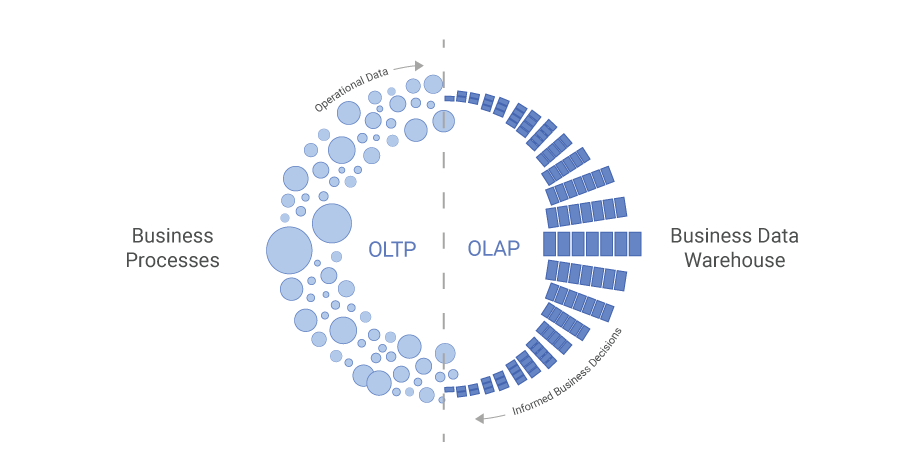Online Transaction Processing FAQs
What is Online Transaction Processing?
Online transaction processing (OLTP) involves rapidly ingesting and reading data (often in near real-time) to support the business’ ongoing operations.
What are Online Transaction Processing Databases?
An OLTP database is used to support a company’s ongoing operations. For data-intensive applications, they are characterized by many small and varied transactions, including mixed writes, updates, and reads, with a high sensitivity to latency.
OLTP vs OLAP
OLTP is often compared with online analytical processing. (OLAP). OLAP involves fewer lengthy operations that retrieve/produce large amounts of data. Each workload is thus oriented towards different measurements of performance: OLTP is latency oriented while OLAP is throughput oriented.
OLTP systems are optimized for frontline workers who need to execute online database transactions such as e-commerce, online banking, and travel reservations.
In contrast, OLAP systems are optimized for conducting complex data analysis by business analysts, data scientists, and knowledge workers. OLAP systems support data mining, business intelligence (BI), and other decision support applications.
OLTP databases often become data sources for OLAP.
Online Analytical Processing (OLAP)
OLAP databases are optimized for read-only queries and analytical processes. They are geared toward more complex queries, exploratory thinking, and deeper business analytics. OLAP systems can deliver business intelligence insights that drive organizational online transaction processing strategy.
OLAP systems typically involve querying many or all database records for analytical purposes. OLAP systems use a multidimensional database—a special type of OLAP database that enables complex queries, may be organized as a data warehouse, and includes current and historical data.
OLAP response times are orders of magnitude slower than OLTP systems. OLAP systems are read-intensive and do not modify data at all; this contrasts with OLTP systems that modify data frequently.
Notably, OLTP systems deliver information to OLAP systems, and the goal of OLAP analytics is often to optimize business processes and improve the OLTP system.
OLTP vs OLAP: An Analogy
For an analogy, let’s consider how this would translate to vehicles. Think of OLAP like freight trucks. Large eighteen wheelers hauling a lot of data. The raw throughput — data volume — is what is important. Online Transaction Processing, on the other hand, is more like a sports car. Built for data velocity, it is latency-sensitive. Right now what the industry is doing is effectively building one data highway for trucks and another highway for sports cars. It is inherently inefficient. Instead what we propose is to run all traffic on the same highway, and grant some lanes of traffic priority over others.
Does ScyllaDB Offer Solutions for Online Transaction Processing?
Yes. ScyllaDB is one of the best databases that support online transaction processing, offering numerous features in support of the execution of large numbers of database transactions in real-time by large numbers of users.
Moreover, by enabling ScyllaDB’s workload prioritization feature, online transaction processing companies and other users can successfully co-host OLTP and OLAP with performance minimally affected and P99 latency hovering at acceptable levels. Learn more here.

